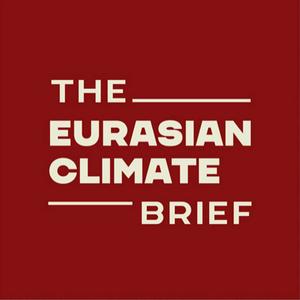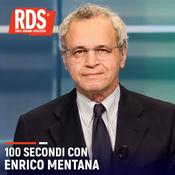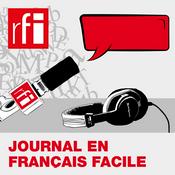39 episodi
Saving Balkhash: Kazakhstan's largest lake under threat from extractivism and climate change
23/12/2025 | 40 minLake Balkhash is the 14th largest lake in the world and one of the largest in Asia. Its ecological importance is matched by the number of threats it has been facing for decades: copper mining, hydropower, agricultural development – and now a nuclear power plant.
How to reach local communities and experts, scientists and policy-makers, cultural institutions, businesses, and the wider public in order to transmit the significance of this unique body of water?
That's what we discussed with Aigerim Kapar, co-founder of the platform Artcom and the initiative Care for Balkhash. Aigerim is an interdependent curator, interdisciplinary researcher, and decolonial activist from Almaty and has been engaged in a number of ecological efforts in Kazakhstan for over 10 years.
Many thanks for Giada Dalla Bontà for introducing the interviewer to Aigerim's work during the 2024 Almaty exhibition 'Interweaving Climate, Water(s) and Communities', without which this episode would not have taken place.
---
The Eurasian Climate Brief is a podcast dedicated to climate issues in the region stretching from Eastern Europe to Russia down to the Caucasus and Central Asia.
---
References cited in the episode:
http://careforbalkhash.org/
https://artcomplatform.com/
http://careforbalkhash.org/program_art_collider_balkhash_almaty_eng
http://artcomplatform.com/artcombb13
---
This episode is supported by n-ost, a media NGO and European Journalistic Network committed to cross-border and multi-prospective reporting, and made by:
Boris Schneider, political economist. European Programme Manager at Clean Energy Wire CLEW (Berlin). Has worked as a specialist on Eastern European climate and energy topics, amongst others for n-ost and the German Economic Team.
Angelina Davydova, environmental/climate journalist. Editor of the magazine Environment and Rights, co-host of the podcast The Day After Tomorrow (Posle Zavtra). Environmental projects coordinator with the Dialogue for Understanding e. V (Berlin). Fellow with the Institute for Global Reconstitution (Berlin). Observer of the UN climate negotiations (UNFCCC) since 2008. Expert/editor of the Ukraine War Environmental CUNFCCC) since 2008. Expert/editor of the Ukraine War Environmental Consequences Work Group.
Jingle: Natallia Kunitskaya
Sound editing & mixing: Angelo Tripkovsky- Central Asia is among the world's most vulnerable regions to climate change. Already today, Kazakhstan, Kyrgyzstan, Tajikistan, Turkmenistan and Uzbekistan are facing various climate consequences: from droughts to landslides, from glacier melts to flash floods. At the same time, this region's energy landscape contains almost all energy sources from fossil to renewables; to a varying degree, the energy transition is underway, even if not at the desired pace.
What are the five Central Asian delegations bringing to COP30 in Belém? Which are their plans on adaptation? Are fossil fuels being phased out? And what's happening on the important topic of just transition across Central Asian societies?
To learn about this and more, Dr. Bakhyt Yessekina, Founder and Director of Kazakhstan's "Green Academy" is joining us on this episode.
---
The Eurasian Climate Brief is a podcast dedicated to climate issues in the region stretching from Eastern Europe to Russia down to the Caucasus and Central Asia.
---
Report cited in the episode:
https://caneecca.org/en/ndc-updates-in-eecca-findings-from-selected-countries/
Side event at COP30:
Formation of the Digital Platform for Article 6 in Central Asia
The Research and Educational Center “Green Academy”, in cooperation with the Ministry of Ecology and Natural Resources of the Republic of Kazakhstan, with the support of the ISTC (International Science and Technology Center) and international partners, will hold a side event “Formation of a Digital Platform for the Carbon Market in Central Asia” on November 14, 2025, at the Digital Innovation Pavilion, C90, Blue Zone, COP30, Belém, Brazil.
Date: November 14, 2025
Time: 09:00–11:30
Venue: Digital Innovation Pavilion, C90, Blue Zone, COP30, Belém
Format: Hybrid (online/offline)
Draft program: https://lnkd.in/dr_Q8fbU
Online registration: https://lnkd.in/dsuNit4F
---
This episode is supported by n-ost, a media NGO and European Journalistic Network committed to cross-border and multi-prospective reporting, and made by:
Boris Schneider, political economist. European Programme Manager at Clean Energy Wire CLEW (Berlin). Has worked as a specialist on Eastern European climate and energy topics, amongst others for n-ost and the German Economic Team.
Angelina Davydova, environmental/climate journalist. Editor of the magazine Environment and Rights, co-host of the podcast The Day After Tomorrow (Posle Zavtra). Environmental projects coordinator with the Dialogue for Understanding e. V (Berlin). Fellow with the Institute for Global Reconstitution (Berlin). Observer of the UN climate negotiations (UNFCCC) since 2008. Expert/editor of the Ukraine War Environmental CUNFCCC) since 2008. Expert/editor of the Ukraine War Environmental Consequences Work Group.
Jingle: Natallia Kunitskaya
Sound editing & mixing: Angelo Tripkovsky - Central Asia is among the world's most vulnerable regions to climate change. And while some of the Central Asian countries are heavily reliant on fossil fuels, there is potential for renewable energy across this entire part of the world. Let's have a closer look at electricity today.
Who are the main drivers of the energy transition? Is cross-border cooperation happening? Are the grids ready for the renewable transition? Which role does hydro play? And what about some countries' nuclear ambitions?
To get a grip on these and many other topics, Nick Fulghum and Ufuk Alparslan of Ember dive into the Central Asian section of their 2025 Global Electricity Review with Boris, while Angelina meets Tatiana Lanshina of Agora Energiewende, who after an overview of the entire region, zooms into Kazakhstan's power sector specifically.
---
The Eurasian Climate Brief is a podcast dedicated to climate issues in the region stretching from Eastern Europe to Russia down to the Caucasus and Central Asia.
---
References cited in the episode:
https://ember-energy.org/latest-insights/global-electricity-review-2025/
https://www.agora-energiewende.org/publications/kazakhstans-power-system-2035
https://www.agora-energiewende.org/publications/enabling-a-just-coal-transition-in-kazakhstan
https://www.etf.europa.eu/en/greenskills2025/kazakhstan-green-skills-future
https://vlast.kz/english/66616-after-trump-tokayev-also-calls-climate-change-a-fraud-and-praises-coal-in-kazakhstan.html
---
This episode is supported by n-ost, a media NGO and European Journalistic Network committed to cross-border and multi-prospective reporting, and made by:
Boris Schneider, political economist. European Programme Manager at Clean Energy Wire CLEW (Berlin). Has worked as a specialist on Eastern European climate and energy topics, amongst others for n-ost and the German Economic Team.
Angelina Davydova, environmental/climate journalist. Editor of the magazine Environment and Rights, co-host of the podcast The Day After Tomorrow (Posle Zavtra). Environmental projects coordinator with the Dialogue for Understanding e. V (Berlin). Fellow with the Institute for Global Reconstitution (Berlin). Observer of the UN climate negotiations (UNFCCC) since 2008. Expert/editor of the Ukraine War Environmental CUNFCCC) since 2008. Expert/editor of the Ukraine War Environmental Consequences Work Group.
Jingle: Natallia Kunitskaya (Mustelide)
Sound editing & mixing: Angelo Tripkovsky Of trolleybuses and mountains: struggling for clean air in Kyrgyzstan and community empowerment in Tajikistan
07/09/2025 | 57 minToday, we are introducing you to two people at the forefront of activism and resistance to very concrete environmental issues in their home countries, Kyrgyzstan and Tajikistan.
Boris talks to Bermet Borubaeva, urban environment analyst, artist and founder of the initiative #BishkekSmog, on her struggle for clean air in the Kyrgyz capital, the preservation of public transport infrastructure and educating the public on waste.
Angelina speaks to Anisa Abibulloeva, project coordinator of the public youth environmental organisation Little Earth about Tajik civil society and her work on climate risks and adaptation programmes, in particular for women-led households in remote mountainous communities.
---
The Eurasian Climate Brief is a podcast dedicated to climate issues in the region stretching from Eastern Europe to Russia down to the Caucasus and Central Asia.
---
Reports cited in the episode:
Governing ‘Green’ Public Infrastructure: The Trolleybus Case in Bishkek
https://berlinergazette.de/the-governance-of-publicly-owned-infrastructure-in-bishkek-the-case-of-trolleybus-demolition/
OHCHR Mandates of the UN Special Rapporteurs — Information received concerning the Bishkek City Council decision to cancel emission-free public transportation (trolleybuses)
https://spcommreports.ohchr.org/TMResultsBase/DownLoadPublicCommunicationFile?gId=29765
Bishkek residents seek mediation to restore trolleybus service
https://bankwatch.org/press_release/bishkek-residents-seek-mediation-to-restore-trolleybus-service
Bishkek’s electric trolleybuses under threat from ADB-funded transport overhaul
https://bankwatch.org/publication/bishkek-s-electric-trolleybuses-under-threat-from-adb-funded-transport-overhaul
The last trolleybus of Bishkek — mayor’s decision defies logic and undermines foreign investments in green transport
https://bankwatch.org/blog/the-last-trolleybus-of-bishkek-mayor-s-decision-defies-logic-and-undermines-foreign-investments-in-green-transport
Future of the Bishkek trolleybus
https://bishkek.linieplus.de/en/news-2/
IfL Visiting Fellowship — Mobility transition in Central Asia: sustainability, power and International financial institutions
https://bishkeksmog.info/2025/06/05/ifl/
Air Quality in Bishkek — Assessment of emission sources and roadmap for supporting air quality management
https://www.undp.org/kyrgyzstan/publications/air-quality-bishkek-assessment-emission-sources-and-roadmap-supporting-air-quality-management
#BishkekSmog initiative: bishkeksmog.info, documentary film (eng): youtu.be/9lNipn0UFJ8
Balihar Sanghera & Elmira Satybaldieva: Rentier Capitalism and Its Discontents https://link.springer.com/book/10.1007/978-3-030-76303-9
---
This episode is supported by n-ost, a media NGO and European Journalistic Network committed to cross-border and multi-prospective reporting, and made by:
Boris Schneider, political economist. European Programme Manager at Clean Energy Wire CLEW (Berlin). Has worked as a specialist on Eastern European climate and energy topics, amongst others for n-ost and the German Economic Team.
Angelina Davydova, environmental/climate journalist. Editor of the magazine Environment and Rights, co-host of the podcast The Day After Tomorrow (Posle Zavtra). Environmental projects coordinator with the Dialogue for Understanding e. V (Berlin). Fellow with the Institute for Global Reconstitution (Berlin). Observer of the UN climate negotiations (UNFCCC) since 2008. Expert/editor of the Ukraine War Environmental CUNFCCC) since 2008. Expert/editor of the Ukraine War Environmental Consequences Work Group.
Jingle: Natallia Kunitskaya (Mustelide)
Sound editing & mixing: Angelo Tripkovsky- The green transition aims to overcome fossil dependencies. But what about the materials required for renewable energy? And why are the EU and others actors so interested in Central Asia?
Join Angelina and Boris as they explore with Almaty-based political scientist Asel Doolotkeldieva, Dmitry Kalmykov from the Kazakh NGO Karaganda Ecological Museum, and Cecilia Mattea of IRMA (Initiative for Resposible Mining Assurance) in Brussels the significance of these materials in the context of sustainable development and climate change as well as questions of extractivism and neo-colonial dynamics.
Together, they will address pressing questions: How can Central Asia leverage its resources for sustainable growth? What are the challenges and opportunities in balancing economic development with environmental protection? And how can regional and global stakeholders collaborate to create a more sustainable future?
Tune in as we delve into the complex challenges that will define the future of climate action across Central Asia - and beyond.
The Eurasian Climate Brief is a podcast dedicated to climate issues in the region stretching from Eastern Europe to Russia down to the Caucasus and Central Asia.
Altri podcast di Notizie
Podcast di tendenza in Notizie
Su The Eurasian Climate Brief
The Eurasian Climate Brief is a podcast focusing on climate news in the region stretching from Eastern Europe, Russia down to the Caucasus and Central Asia. It aims to give a voice to the best experts and journalists, enabling them to make sense of a part of the world where environmental news is seriously underreported.The podcast was launched in in October 2021, coinciding with COP26 in Glasgow. After a year-long hiatus, the podcast finally returns - just ahead of COP29 in Baku. Make sure to follow the show in you podcast app of choice!
Sito web del podcastAscolta The Eurasian Climate Brief, Giorno per giorno e molti altri podcast da tutto il mondo con l’applicazione di radio.it

Scarica l'app gratuita radio.it
- Salva le radio e i podcast favoriti
- Streaming via Wi-Fi o Bluetooth
- Supporta Carplay & Android Auto
- Molte altre funzioni dell'app
Scarica l'app gratuita radio.it
- Salva le radio e i podcast favoriti
- Streaming via Wi-Fi o Bluetooth
- Supporta Carplay & Android Auto
- Molte altre funzioni dell'app


The Eurasian Climate Brief
Scansione il codice,
scarica l'app,
ascolta.
scarica l'app,
ascolta.



































